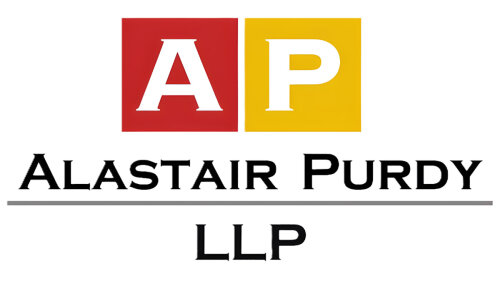Best Employment Rights Lawyers in Galway
Share your needs with us, get contacted by law firms.
Free. Takes 2 min.
List of the best lawyers in Galway, Ireland
About Employment Rights Law in Galway, Ireland
Employment rights law in Galway, as in the rest of Ireland, focuses on protecting the rights of employees and ensuring appropriate labor standards are maintained. These rights encompass a wide array of issues, including fair wages, safe working conditions, anti-discrimination measures, and procedures for handling grievances and disputes. Both Irish and European Union laws frame the context of employment practices, ensuring that both domestic and cross-border employment relationships adhere to established standards. With Galway being a vibrant city with a diverse economy, understanding local employment rights is crucial for both employers and employees.
Why You May Need a Lawyer
There are several scenarios where individuals in Galway might require legal advice regarding employment rights. These can include situations involving unfair dismissal, discrimination or harassment at the workplace, issues concerning redundancy payments, breaches of employment contracts, or disputes over working hours and pay. Lawyers specializing in employment law can provide invaluable assistance in interpreting complex legal language, representing you in negotiations or in court, and ensuring that your rights are upheld in accordance with Irish law.
Local Laws Overview
Key aspects of the employment laws in Galway and wider Ireland include the Employment Equality Acts, which prohibit discrimination on various grounds such as age, gender, and religion. The Organisation of Working Time Act regulates working hours, breaks, and rest periods. Furthermore, the Unfair Dismissals Act protects employees who have been unjustly let go. Minimum wage regulations, leave entitlements, and health and safety laws also play a critical role. Compliance with these laws is crucial for employers, and understanding them helps employees know their rights and entitlements.
Frequently Asked Questions
What is the minimum wage in Ireland?
As of 2023, the National Minimum Wage for an adult worker is €11.30 per hour, though this rate is subject to periodic updates and revisions by the Irish government.
How can I address discrimination in the workplace?
If you face discrimination at work, you should first report it to your employer or HR department. If necessary, you can bring a claim to the Workplace Relations Commission (WRC).
Am I entitled to paid annual leave?
Yes, under Irish law, you are entitled to a minimum of 4 weeks of paid annual leave per year, with pro-rata entitlements if you work part-time.
What is a redundancy payment?
Redundancy payments are owed when an employee is let go because their job no longer exists. This payment is typically based on length of service and average earnings.
Can I request flexible working hours?
Irish law allows parents and those with caring responsibilities to request flexible working arrangements, though employers are not legally obligated to grant every request.
What should I do if I’m unfairly dismissed?
If you believe you have been unfairly dismissed, you may file a complaint with the Workplace Relations Commission within 6 months of the dismissal.
What constitutes a breach of contract?
A breach of contract occurs when either an employer or an employee fails to honor the terms agreed upon in the employment contract, such as failing to provide due notice.
Am I entitled to sick leave?
Though there is no statutory minimum for sick leave, many employment contracts specify entitlements, and public sector employees often have specified sick leave arrangements.
What is the role of the Workplace Relations Commission?
The Workplace Relations Commission handles complaints relating to breaches of employment legislation, conducts inspections, and helps resolve disputes.
Can employers conduct layoffs at will?
While employers can lay off staff for economic reasons, they must follow strict procedures, including consultation and selection criteria as required by redundancy laws.
Additional Resources
For further assistance with employment rights, consider reaching out to the Galway Citizens Information Centre or the Labour Relations Commission. Additionally, the Workplace Relations Commission (WRC) provides guidance and services for resolving employment disputes. Engaging with trade unions can also provide support and advice on employment issues.
Next Steps
If you are facing an employment rights issue, first attempt to resolve it internally with your employer. If this does not work, consider seeking guidance from the Workplace Relations Commission or consulting with a lawyer specializing in employment law. It's important to understand your rights and take action promptly, especially as some claims have strict time limits. For legal representation, local solicitors specializing in employment law in Galway can provide the expertise needed to effectively navigate your case.
Lawzana helps you find the best lawyers and law firms in Galway through a curated and pre-screened list of qualified legal professionals. Our platform offers rankings and detailed profiles of attorneys and law firms, allowing you to compare based on practice areas, including Employment Rights, experience, and client feedback.
Each profile includes a description of the firm's areas of practice, client reviews, team members and partners, year of establishment, spoken languages, office locations, contact information, social media presence, and any published articles or resources. Most firms on our platform speak English and are experienced in both local and international legal matters.
Get a quote from top-rated law firms in Galway, Ireland — quickly, securely, and without unnecessary hassle.
Disclaimer:
The information provided on this page is for general informational purposes only and does not constitute legal advice. While we strive to ensure the accuracy and relevance of the content, legal information may change over time, and interpretations of the law can vary. You should always consult with a qualified legal professional for advice specific to your situation.
We disclaim all liability for actions taken or not taken based on the content of this page. If you believe any information is incorrect or outdated, please contact us, and we will review and update it where appropriate.














